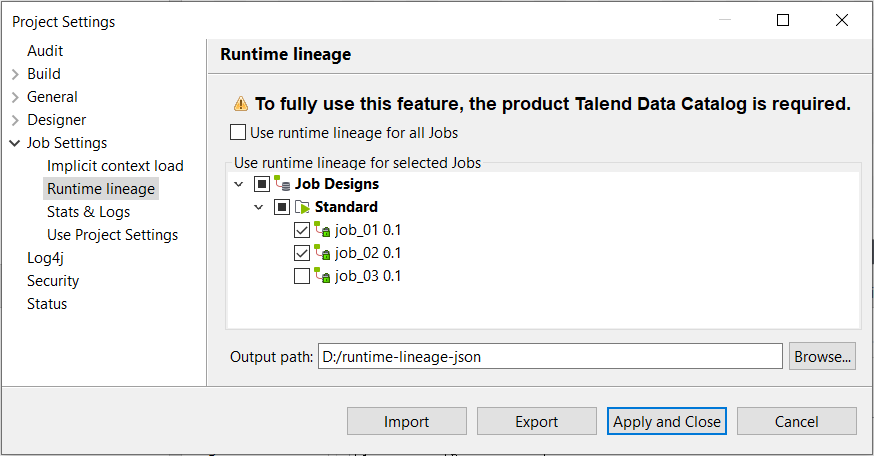Enabling runtime lineage for Jobs
Talend Studio allows you to enable runtime lineage for Standard Jobs, which can be leveraged in a future release by the analysis capability of Talend Data Catalog for the runtime metadata, for example, the query with variables, the schema with dynamic columns, etc.
When executing a Standard Job for which runtime lineage is enabled, the information needed by Talend Data Catalog, for example, the Job name, the component name, the schema, the query, etc., will be written into a JSON file.
Information noteNote: To fully use this feature, you must install Talend Data Catalog.

 on the toolbar of the
on the toolbar of the 